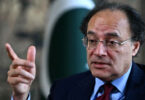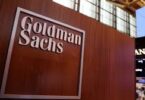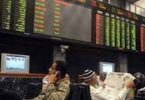LONDON (BBC): JP Morgan Chase has taken over the troubled US bank First Republic in a deal brokered by regulators.
The Wall Street giant said it would pay $10.6bn (£8.5bn) to the Federal Insurance Deposit Corp (FIDC), after officials shut down the smaller bank.
First Republic had been under pressure since last month, when the collapse of two other US lenders sparked fears about the state of the banking system.
Authorities said they hoped the deal would resolve the panic.
The failure of San Francisco-based First Republic is the second-largest in US history and the third in the country since March.
Worth more than $20bn at the beginning of last month, the bank was known for its big home loan business and for its stable of wealthy clients. It was ranked as the 14th largest lender in the US at the end of last year.
The bank’s 84 offices in eight states reopened on Monday as branches of JPMorgan Chase Bank after regulators seized control and sold it to the Wall Street institution.
In a scramble to come up with a rescue package, US officials were understood to have contacted six banks before landing on America’s largest lender, according to news agency AFP.
US President Joe Biden said the actions would ensure that the banking system was “safe and sound”.
But the deal appeared poised to renew political debate about financial regulation and the power of America’s biggest banks.
Jamie Dimon, chief executive of JP Morgan Chase, said the government had “invited” the banking giant, along with others, to “step up, and we did” and offered assurances about the industry.
“This part of the crisis is over,” he said, noting that few other banks were at risk of customers withdrawing deposits on mass, which caused the problems at First Republic and the two other lenders: Silicon Valley Bank and Signature Bank.
“Down the road – rates going up, recession, real estate – that’s a whole different issue. For now, we should take a deep breath,” he added.
Why did First Republic Bank fail?
Fears over the health of the US’s banking system first erupted after the collapse of Silicon Valley Bank (SVB) in March. The demise a few days later of another US lender, Signature Bank sparked panic among investors and bank customers.
US authorities stepped in to guarantee deposits beyond typical limits at SVB and Signature in an effort to head off further runs on bank deposits.
But that did not immediately prevent concerns from spreading.
In Europe, Swiss officials were forced to broker a rescue for troubled banking giant Credit Suisse, which saw 61.2bn Swiss francs ($69bn; £55.2bn) leave the bank in the first three months of the year.
Meanwhile, a group of America’s biggest banks, including JP Morgan, pumped $30bn into First Republic in a bid to stabilise the business, which was seen as vulnerable because its assets had been hurt by the rise of interest rates last year and its wealthy customers were likely to transfer funds.
First Republic’s disclosure last week that it had lost roughly $100bn in deposits reignited concerns.
Investors, who had already been dumping shares, bolted. The firm’s shares – worth more than $120 apiece at the beginning of March – were trading for less than $4 on Friday.
Mr Dimon said the big banks’ deposit influx, which will now be repaid, had bought time and allowed regulators to close the firm without having to guarantee all deposits.
Shares in JP Morgan gained 2.6% following the deal, which will see it take on all $92bn deposits remaining at First Republic and “substantially all” of its assets, including $173bn of loans and about $30bn of securities.
As part of the agreement, the FDIC will share losses on some loans with the JP Morgan and provide it with $50bn in financing. It has estimated that its insurance fund would take a hit of about $13bn in the deal.
‘Taxpayers will not bear costs’
Mr Biden emphasised that under the current deal the insurance fund – which gets money from banks – would bear the costs, not taxpayers.
“Shareholders are losing their investments and critically taxpayers are not the ones that are on the hook,” he said.
Repeating earlier calls for stronger regulation, the President said: “We have to make sure that we’re not back in this position again.”
A spokesperson for the US Treasury Department said it was “encouraged” that the deal was carried out in a way “that protected all depositors”.
Meanwhile, the FDIC also released a proposal to change how the government insures bank deposits so that business accounts are protected beyond the current $250,000 limit, citing a need to respond to questions raised by the recent events.
Betsey Stevenson, professor of economics at the University of Michigan, said First Republic did not have “systemic problems” but failed because customers panicked.
The takeover by JP Morgan was better than the alternative – a fire sale of First Republic’s holdings, she added.
The turmoil in the banking sector is seen as part of the fallout after central banks around the world, including the US, raised interest rates sharply last year.
Those moves have hurt the value of debt with lower interest rates.
Analysts have said the current issues are distinct from the 2008 financial crisis, when bad loans in the US housing market hit banks around the world, leading to enormous government bailouts and a global economic recession.
“What’s different this go-round, is that it’s not credit quality that’s bringing these banks down, it’s been the interest rate risk,” said David Chiaverini, managing director at Wedbush Securities.
He said the most at-risk banks had now fallen but warned banks were “not completely out of the woods”, adding others could be hurt as higher borrowing costs slow the economy and unemployment and loan defaults rise.







